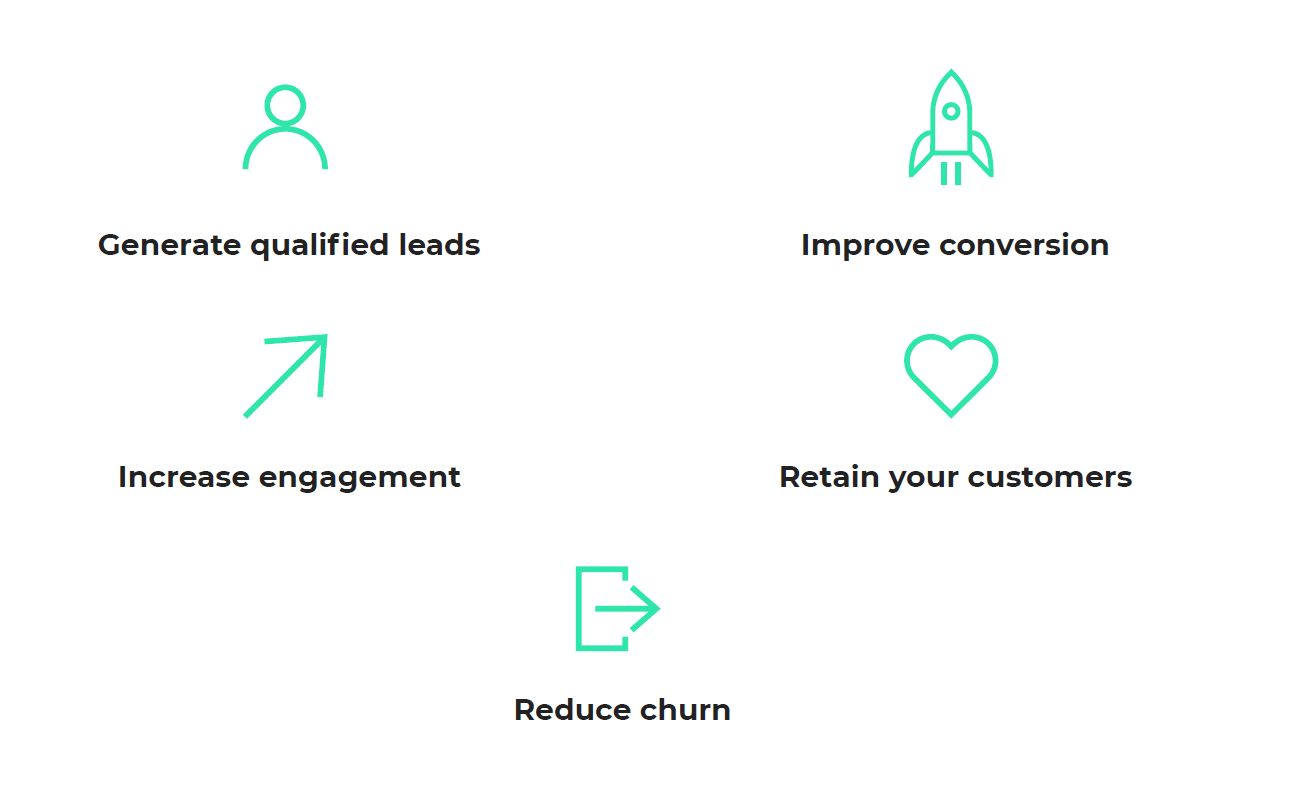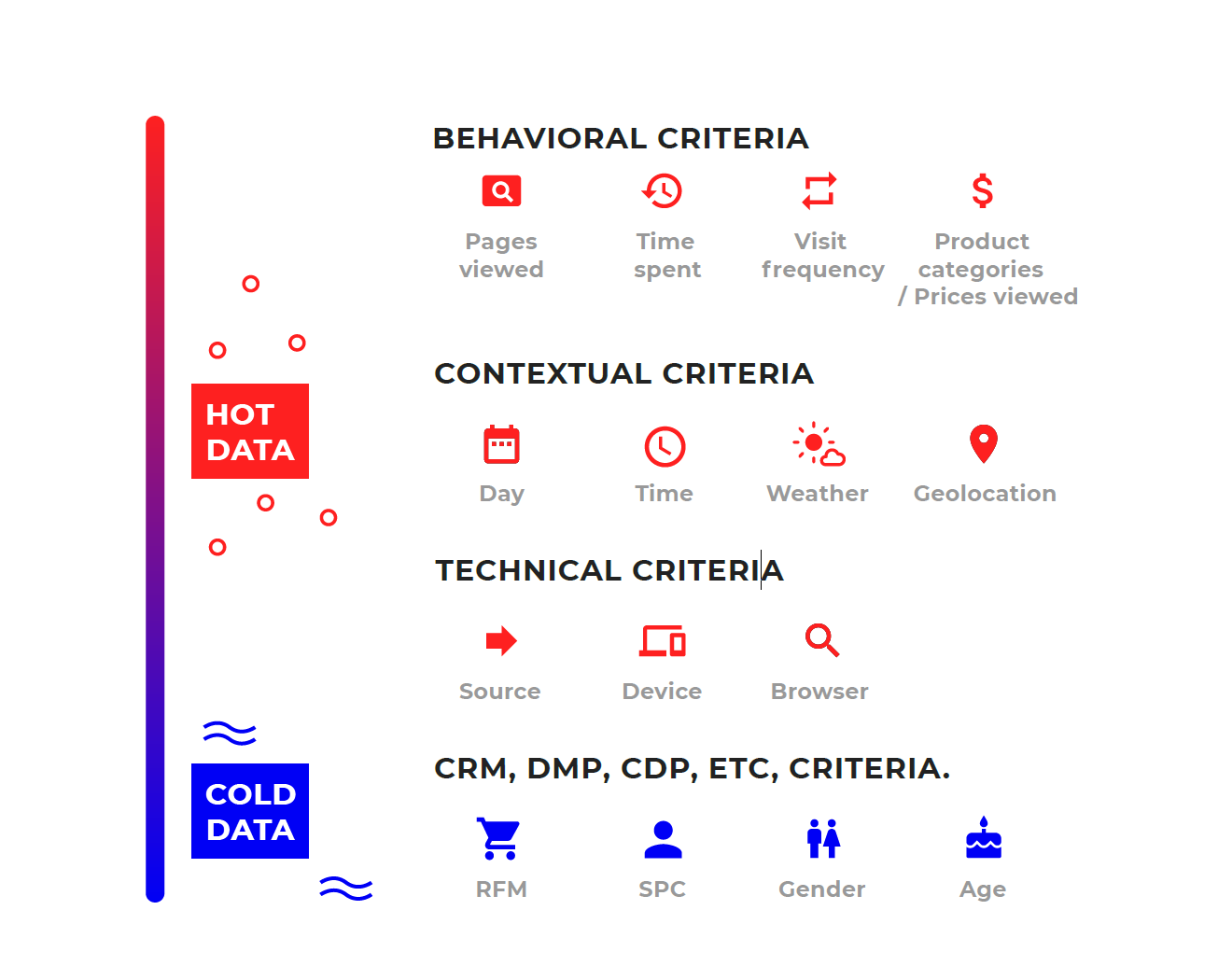
Delivering personalization at scale to unlock $1.7 trillion in new revenue
McKinsey believes personalization will be the prime driver of marketing success within five years. Essentially those brands that are able to deliver a tailored, individual experience to each and every one of their customers, across every channel will thrive and take market share from rivals that fall behind.
The consultancy sees personalization at scale having the potential to create $1.7-$3 trillion in new value for brands across the globe. However, unlocking this value - both for businesses and most importantly for consumers, at scale, will require companies to change. This blog looks at what brands and digital marketers need to do to achieve success.

1 Five foundations for personalization at scale
The COVID-19 crisis has demonstrated the importance of personalization to engaging with customers, and has also accelerated the adoption of digital, as we’ve outlined in this research-based blog. That means that putting the right foundations in place is now even more vital.
In its latest personalization guide, McKinsey identifies five areas to focus on:
Invest in customer data and analytics
Marketers have access to more data than ever before, but it can be difficult to see the wood for the trees. Information can be siloed in particular systems or channels, be out of date or difficult to act on quickly enough. McKinsey therefore recommends centralizing customer data and bringing different teams and departments together and equipping them with the right skills to build a data-driven organization.
This requirement for speed and better use of customer data is particularly vital on digital channels. Just 2% of website visitors convert on average, and with many consumers accessing your website for the first time, or without being logged in, being able to identify them, understand their needs and measure their intent in real-time can be difficult. Relying on cold data (such as from CRM systems) is not enough - brands need to invest in artificial intelligence algorithms that can quickly understand what website visitors are looking for, based solely on their real-time behavior, and use this to deliver a personalized experience. Companies also need platforms, such as Kameleoon that can collect and analyze data and easily share it across the martech stack and wider organization.

Train the right talent
McKinsey identifies a growing need for ‘translators’ - people with the skills to sit between technologists and the business, translating corporate goals into technology strategy and then communicating the results back to managers. Additionally, organizations will require new skills around areas such as AI that are currently in short supply. Mastering these capabilities will require investment in training and also partnering with agencies and technology providers that can fill gaps.
Brands must therefore ensure they have the right balance of skills within their teams to equip them for a personalization-first future. In our work with customers we can see that skills, such as around creating and managing experimentation and personalization programs are spreading rapidly, although they are still new to many organizations. Our consultants therefore collaborate closely with our clients to help share best practice and key use cases, helping them develop their skills and proficiency.
Build agile capabilities
The COVID-19 pandemic has reinforced the need for agility - brands have had to transform operations quickly due to lockdowns and changing customer needs. With uncertainty now a way of life, McKinsey states that it is only those brands that are agile and bring together cross-functional teams that will meet customer needs and therefore thrive.
We’ve previously stressed the importance of creating a culture of experimentation that focuses on testing everything and using data (rather than gut feel) to drive decision-making. This delivers the agility and customer-centricity to meet the changing needs of all of your individual customers. This interview with Stephen Pavlovich of Conversion.com provides expert advice on how to build this culture in your brand. Your team also needs the technology to enable rapid, scalable personalization and A/B testing, through an all-in-one platform that covers the entire experimentation process.
Protect customer privacy
Consumers and regulators are both increasingly vigilant over the privacy and protection of personal data. While 73% of global consumers surveyed by Kameleoon want to receive a personalized online experience, this cannot be at the expense of customer privacy.
As McKinsey explains, privacy issues lie at the heart of the trust between consumer and brand, meaning businesses need to get it right. Failure to respect visitor preferences in areas such as user consent will damage relationships, brand reputation and lead to potentially enormous regulatory fines under legislation such as the GDPR and CCPA.
Every vendor brands work with has to be focused on compliance, with the right processes in place to meet regulatory needs and technology features, such as around user consent management, to make protecting customer privacy a priority.
At the same time personal data is vital to effectively understanding your customers and delivering the personalized experience that they demand. A key way to achieve both privacy and personalization is by using behavioral data from your website visitors to understand customer intent in real-time. This enables brands to trigger the right personalizations, messages and offers, while respecting the anonymity of the visitor - meeting consumer and regulatory needs.
Get started now!
Scalable, true personalization of all your customer-facing activities is a journey, meaning that you will not reach your destination overnight. However, as McKinsey points out, often the most difficult part is getting started. It advises beginning with specific use cases that can deliver a demonstrable ROI and then building from there.
This is where combining a culture of experimentation, a strong, easy-to-use technology platform and support from vendors are vital. Brands need to pick areas where they can make changes that will show the rest of the business that personalization and testing provide real benefits that link to corporate objectives. For example, stationery brand Papier saw the changes it made after a single A/B test increase annualized revenues by 6%, helping it achieve its aggressive growth targets.

The disruption caused by COVID-19 provides the perfect opportunity to accelerate personalization - with traditional structures and hierarchies being challenged and more people online, it can help convince managers of the benefits that personalization delivers.
2 Making the right technology choices
Successful personalization requires a combination of people, processes and technology. As part of this McKinsey has set out a technology blueprint based on what it calls the 4Ds:
Data
Brands need to centralize customer information by breaking down silos and sharing it across the organization through technologies such as Customer Data Platforms (CDPs) and Data Management Platforms (DMPs).
Decisioning
Making effective decisions based on data, at scale, in a transparent manner, is difficult. This is particularly true when it comes to AI-driven personalization, where too many platforms are black boxes that make decisions without human involvement. This can lead to lower than expected ROI and sub-optimal choices. Instead, technologies such as Kameleoon, which combine AI with transparency, put brands in control over the decisions they make, which still benefiting from machine learning to deliver personalization at scale.
Design
Personalization requires a new approach to creating individual content to match specific customer needs. Old style methods of creating content are difficult to scale, meaning brands need to combine a modular content approach with technology that is easy to use, even by non-technical marketing staff.
Distribution
In an omnichannel world with complex customer journeys, ensuring that the experience is personalized across the right channel, at the right time is vital. Brands therefore need to integrate their technology stack and ensure that data, such as around intent, flows seamlessly between different systems in real-time.
Preparing for the future
On the positive side, McKinsey stresses that many brands already have many of the pieces of the personalization puzzle in place - and that achieving scalable success is a journey, rather than a one-off event. However, given its vital importance to customer engagement and brand revenues the time to start the journey is now, working with the right partners to drive personalization forward for your brand.




